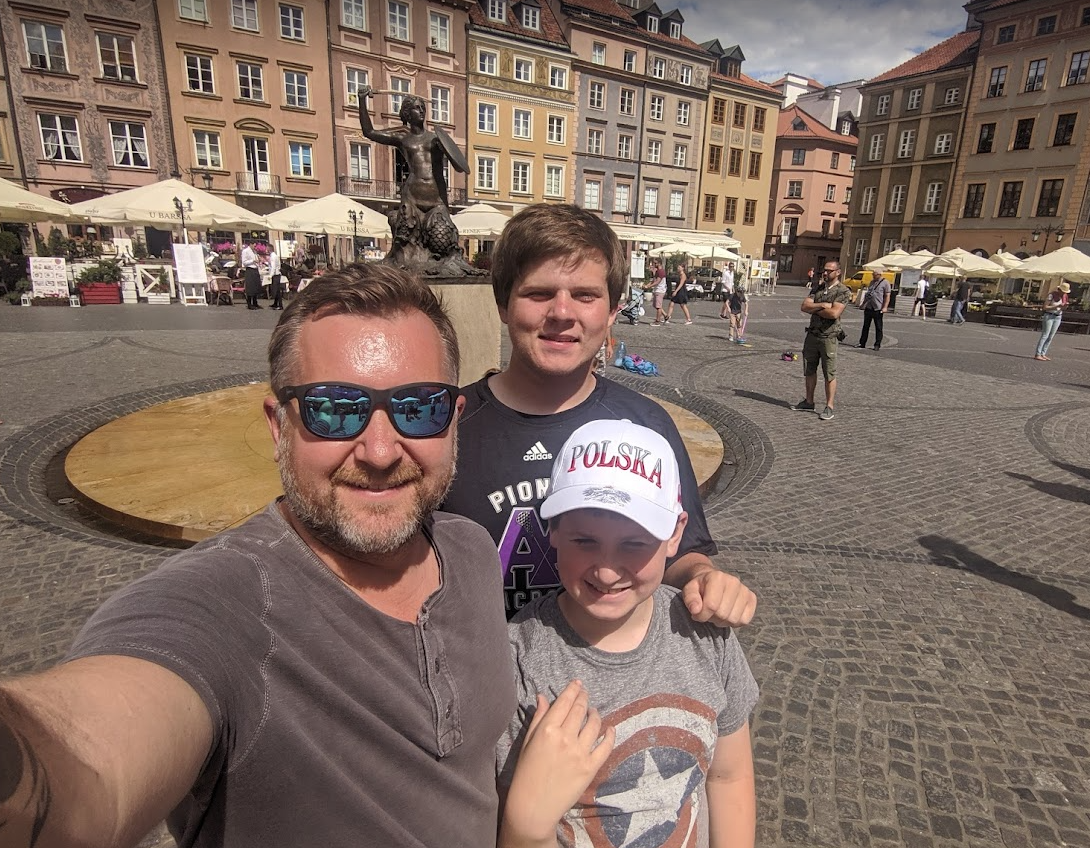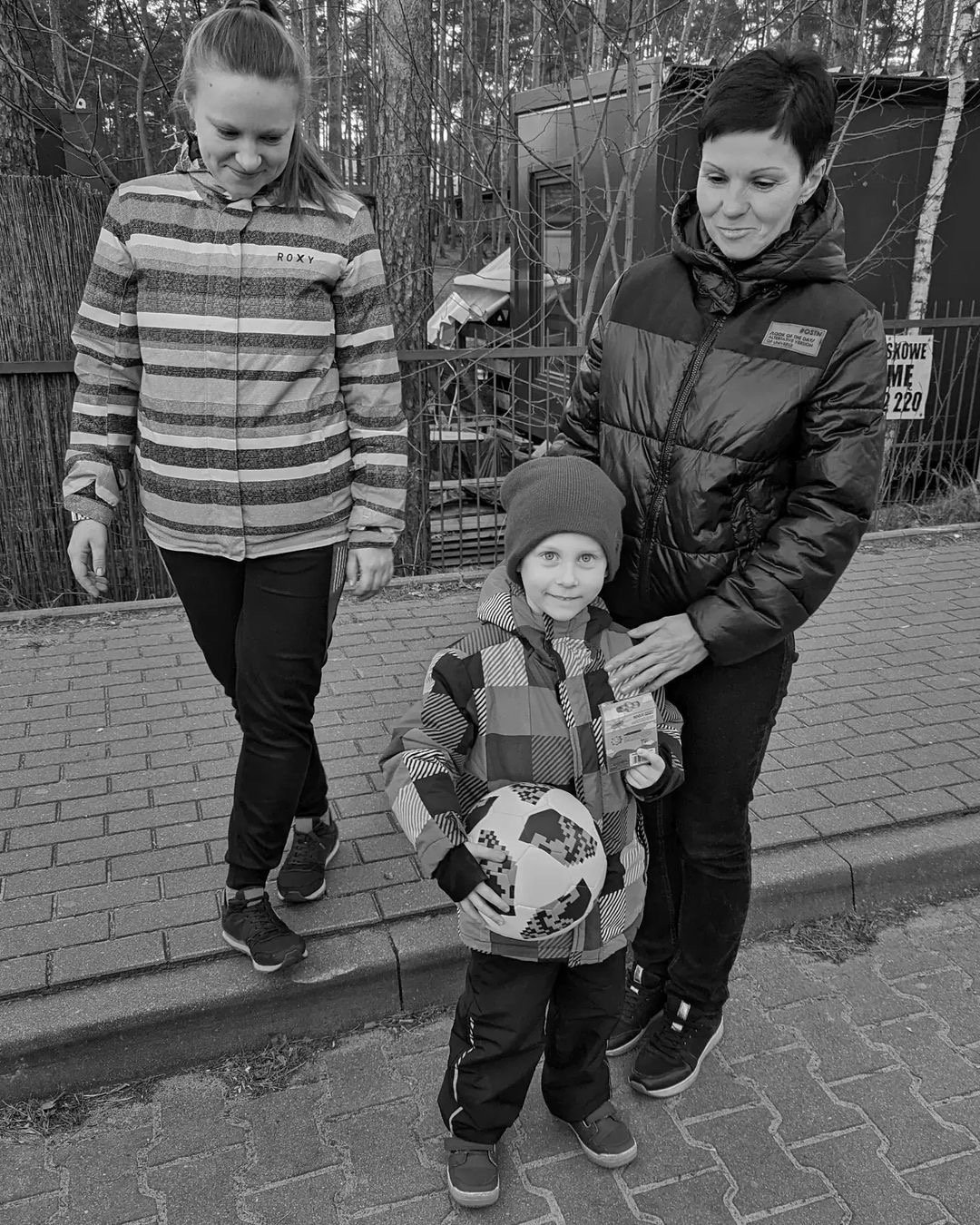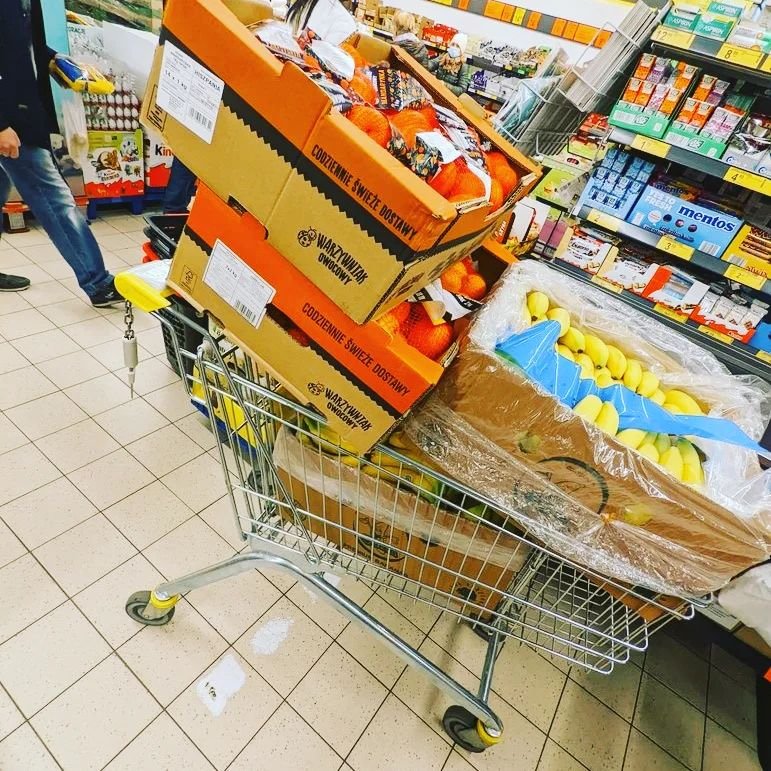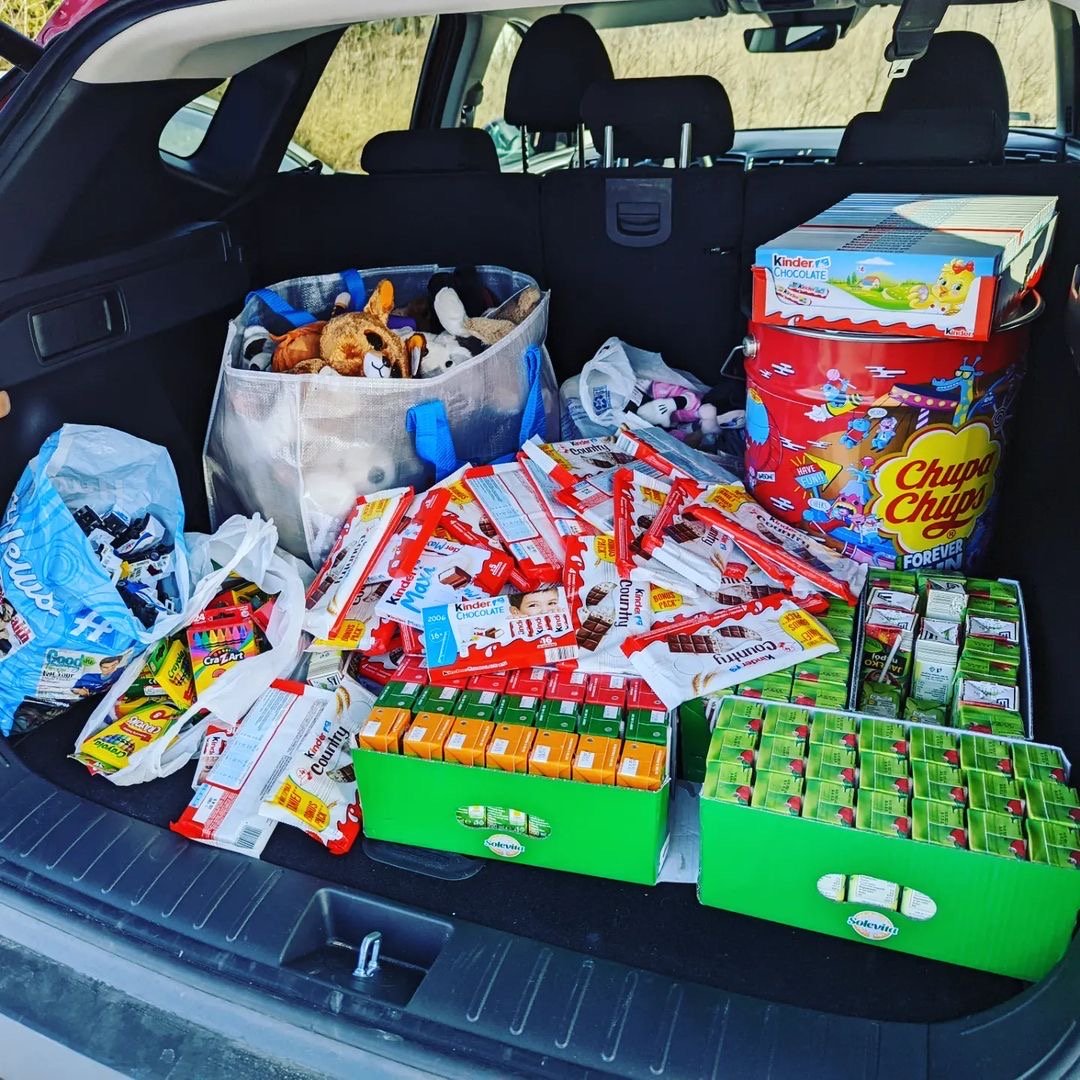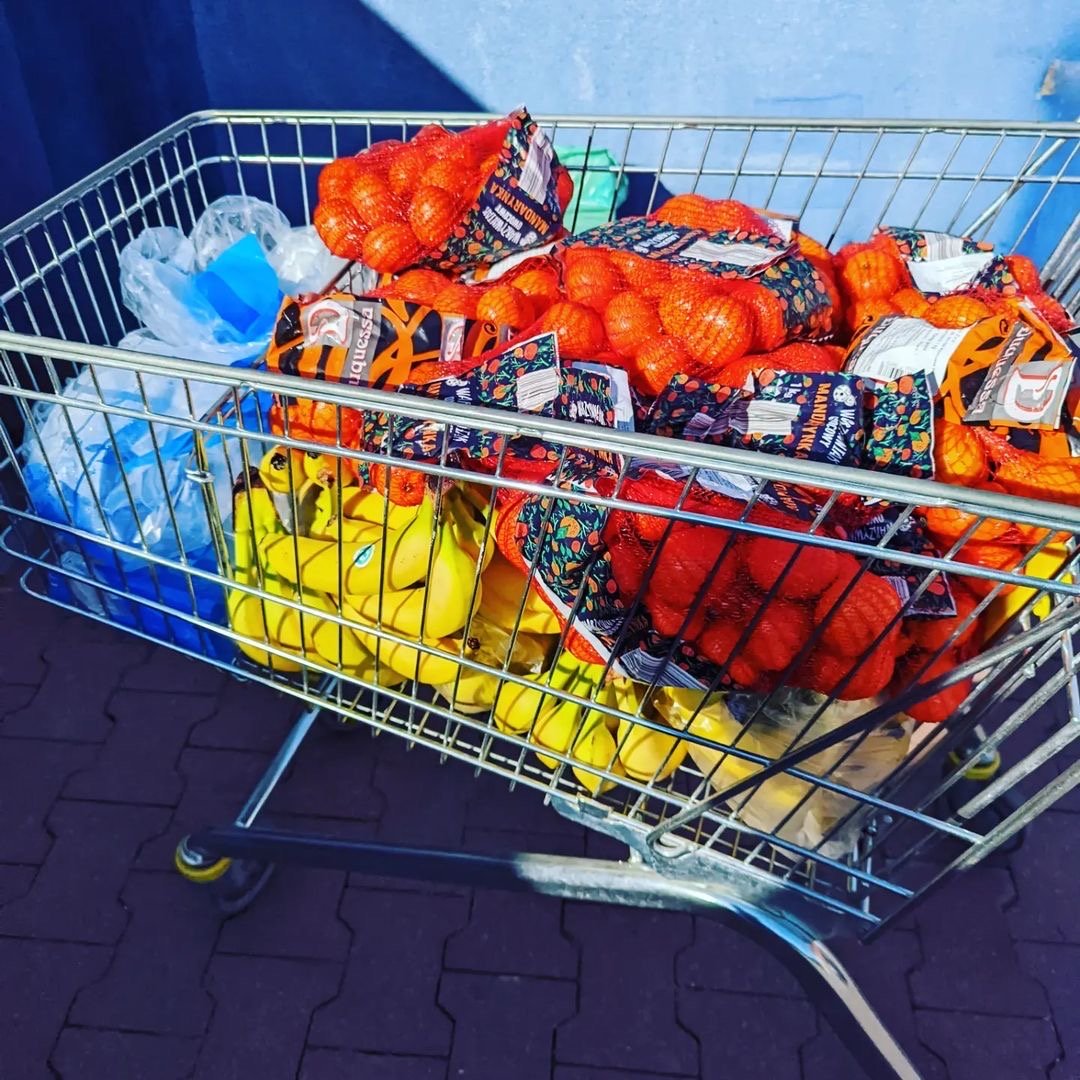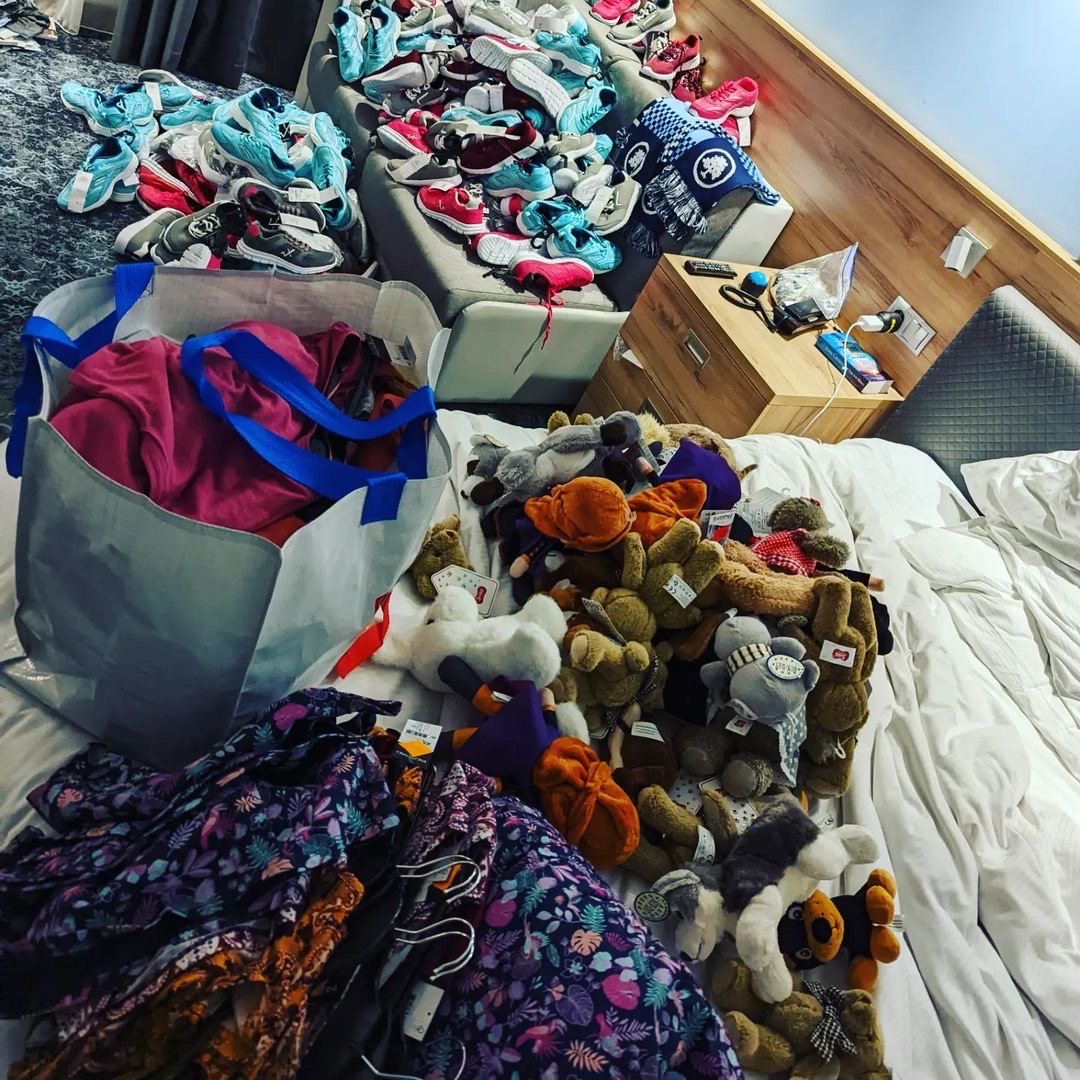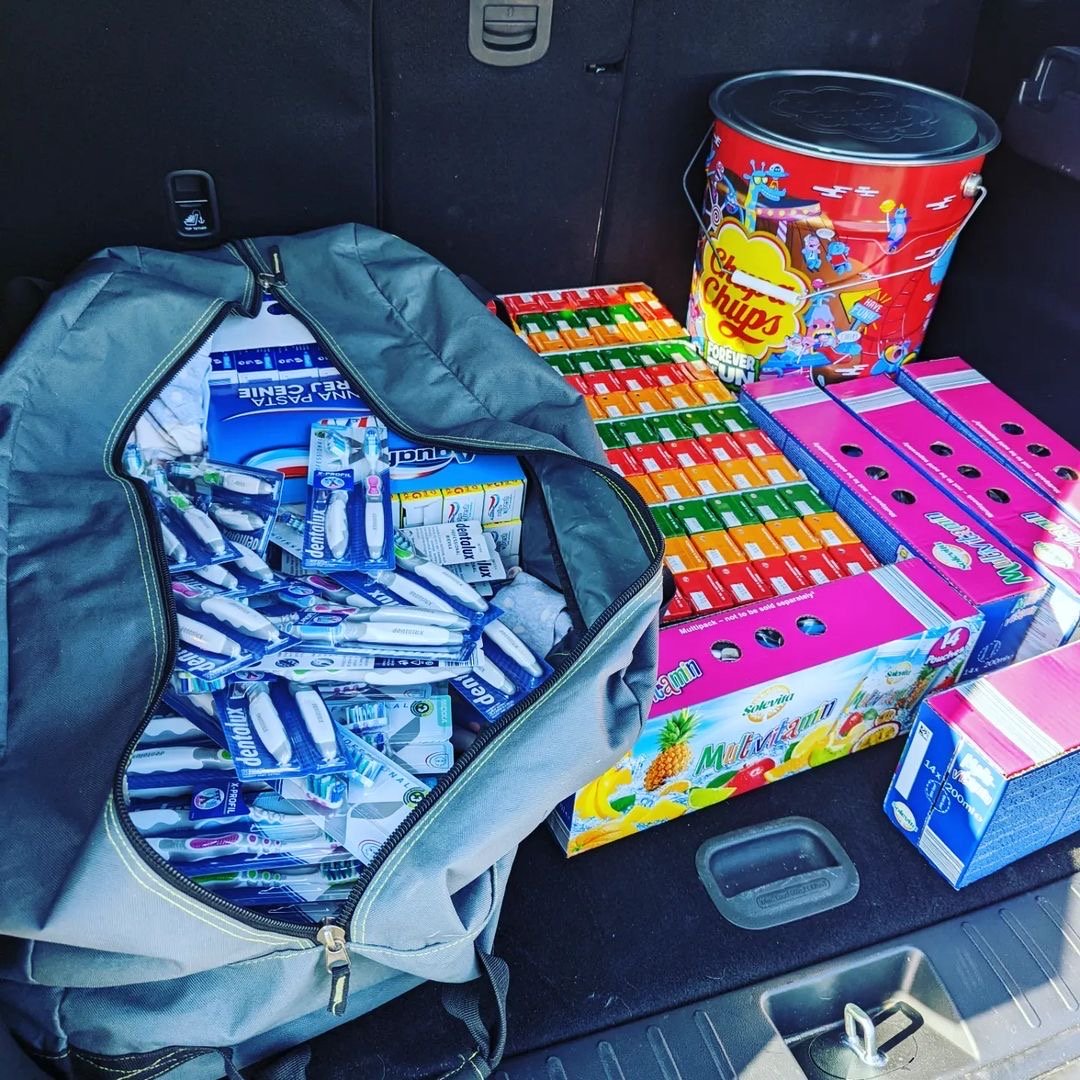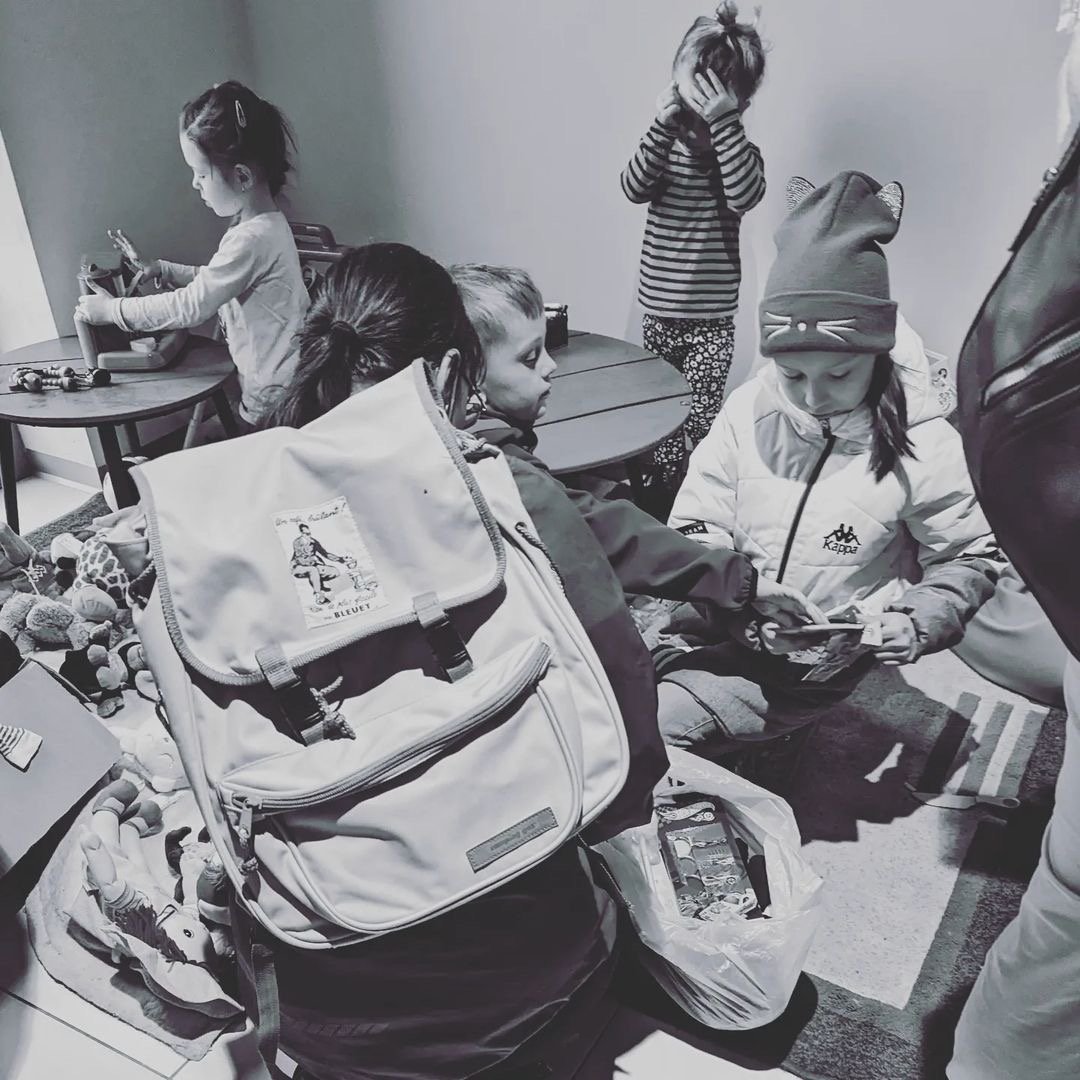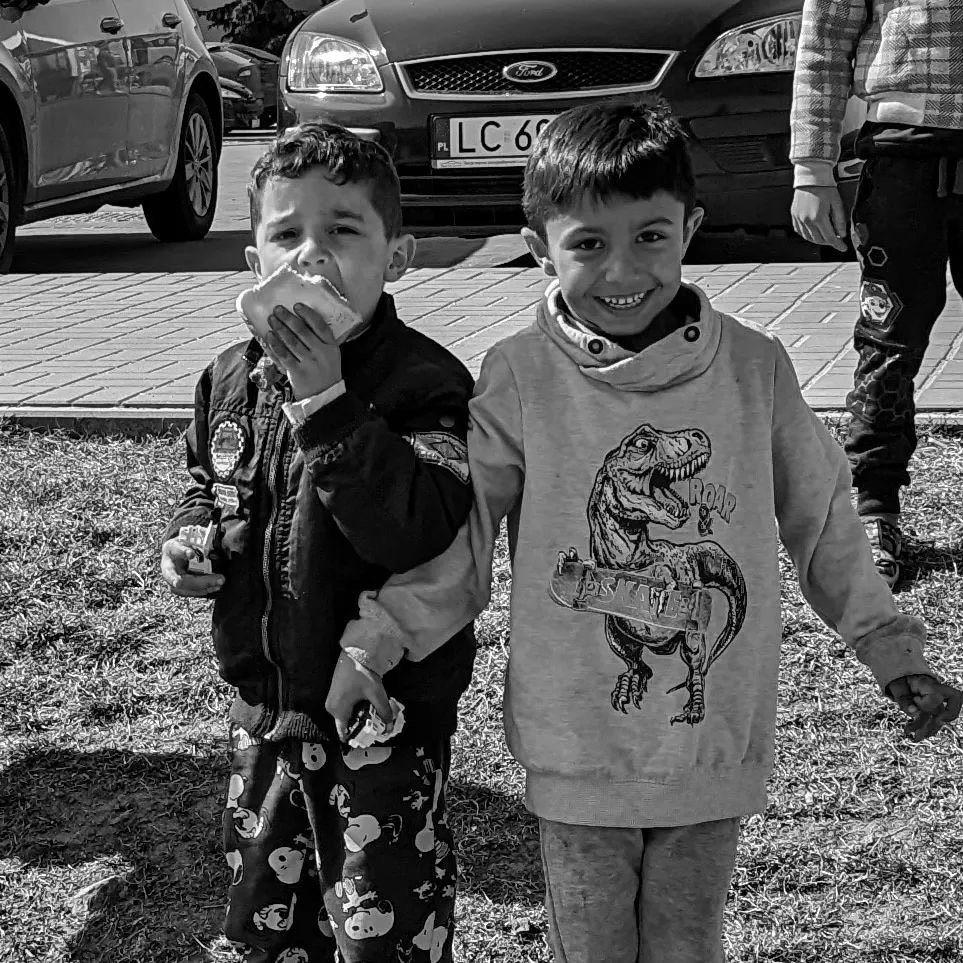By Ryan Makuch
When I last spoke to club co-owner Mike Lorenc ahead of his trip to Poland to aid in assisting Ukrainian refugees coming to Poland, he had not yet left Ann Arbor. Just over $25,000 had been raised, an immense amount raised quickly by the community, and the situation was still very much developing on a global scale.
Since that moment, the Russian invasion of Ukraine enters what is set to be its sixth week and remains the dominating news story of the day. Lorenc has now ventured into Poland, where he is currently, with over $75,000 now having been donated to his GoFundMe campaign, which remains active, and $20,000 of his own money to match. Lorenc is now confronting the stark, harsh, truth that war provides for those fleeing from their homes.
Upon arrival in Poland, he spent a day with his family before heading to a refugee camp that we had previously discussed in Sielpa, a small village on a lake with deep blue water and a beautiful beach. This is an area Lorenc was very familiar with – his family visited his grandparents and vacationed there in the summers as he grew up in Poland.
“I had no idea what to expect,” Lorenc admitted, of his first venture into interacting with some of the newest residents of Poland.
Lorenc describes his first encounter in vivid detail with a refugee family with a sense of the event being fresh in his mind despite it having occurred a week prior, and with several other life-changing events for Lorenc happening between then and the time of our conversation.
“I grabbed some of the things I had from the US, including the AFCAA scarf and soccer ball, and I drove up to get a lay of the land, to see what was happening, [and] to talk to people registering. There was a family with a mom, a young daughter, and a son, about 7-8 years old. They were walking by solemnly. I waved at them and opened my trunk. I had some candy, some stuffed animals, and the ball, and I gestured for the boy to come get something. When he saw the soccer ball, his eyes lit up. And that was basically an hour and a half into my stay.”
Moments like this are why Lorenc’s strategy in assisting was two-fold. Spreading “hope and joy” and boosting the spirit of the people was one of the core hopes of Lorenc in making this trip. ‘Pirat Misha’ (Russian for ‘Pirate Mike’, a new nickname given to him by the youths he has seen) has been doing much of that. Candy, chocolate, stuffed animals, matchbox cars, and AFC Ann Arbor soccer balls are just a few of the ‘non-essential needs’ that Lorenc has been assisting in the distribution of. But it’s not just these things.
“My idea was to identify the immediate need and try to fill it right away,” he would say about his strategy, especially in the first couple of weeks of his stay. Needs vary on a day-to-day basis and they vary from place to place. “The other day they didn’t have bread that was promised to them,” Lorenc recalls of the needs of a near-border train station one day. “So, I got 30 loaves of bread, and milk because they like to put milk in their coffee and tea.”
Like the soccer balls, there are several items that nobody has, but many need. For example, Lorenc notes the allowance by the city of Lublin (where Mike is based, roughly 50 miles from the Polish/Ukrainian border) to let refugee families use public pools free of cost. Of course, with the refugees not only fleeing but fleeing in frigid temperatures, swimsuits were not particularly on the mind of anyone. So Lorenc worked to attempt to wrangle together several hundred swimsuits, which was not particularly easy given their lack of availability out of season. However, perseverance prevailed and Lorenc was able to provide the assistance.
Other things like tennis shoes (many left their homes wearing boots for the cold weather), underwear (often left behind for more important items), and cat and dog food (for those with pets) are just a few of the other “forgotten” items that Lorenc has been able to assist in purchasing for Ukrainian refugees.
Where Lorenc has spent much of his time, money, and energy, as of late, has been a ‘Free Clothing’ shop in a local Lublin mall. Run primarily by volunteer Ukrainian refugees, Lorenc wanted to supplement the used clothes being donated by the Polish people with new clothing for two specific reasons: to allow people to get apparel they like in their exact size, and to welcome those refugees leaving behind their livelihood and many of their worldly belongings for a new life.
“I wanted to welcome them with dignity. I wanted them to pick something new.”
Aside from his work on the ground, Lorenc is also able to provide some sense of context for a war that can feel very distant and far away.
On the refugee population, Lorenc said: “95% are women with children. No men. Even older men stayed behind. Lots of single women chose to stay behind. So it’s mostly grandmas or moms with kids.”
“In the women, the moms, you can just see lots of sadness and heaviness in their eyes,” Lorenc said. “They spend lots of time on their phones checking in on their loved ones left behind, and making arrangements on what to do. Like I said, there’s lots of sadness, and they’re the lucky ones. Because they already left and many of them are already on the next step.”
He also observed some behavior from the children that underlines the sheer magnitude of this event. “What I noticed is that kids, you can tell they’re very worried or traumatized. They tend to stay close to their moms, they’re quiet,” Lorenc said. But … “every now and then you can see the kids in them surfacing.”
“There was a group of 15-20 refugees, about 10 of them were kids aged 12 and under, and they were waiting for a bus,” said Lorenc, starting a story about an event he would later say was something he doesn’t “think I’ll ever forget”. Lorenc continued.
“In my backpack, I had some of the Matchbox cars that I always carry with me, and some chocolate. So I gave them some things for the trip, and they started playing, they started running around and you could hear the laughter of the kids. So even in this very difficult situation, they’re still being kids. Right before the bus left, there was a little kid sitting inside the bus, and he was just playing with his little car on the window. And he noticed me, he gave me a little wave and smile, and my heart melted.”
Lorenc has also met a massive cast of helpers, both Polish and international. There are two women who have been cooking for refugees since the conflict began. “One of them was joking that she was making her husband cook her dinner, and if you know anything about Polish people you know that’s just like ‘wow!’”, Lorenc said. There is the “former smuggler with a checkered past” who told Lorenc he is used his “contacts, knowledge of topography, street smarts, and language” to help people cross the border. There is a fellow Mike, this one from New Hampshire. Mike from NH, a former military man, was not allowed to fight by his wife, so he rented a car and is driving refugees all over Poland, and beyond when needed.
Even with the massive volunteer effort, Lorenc says, “The sheer volume is overwhelming.” On 3/29, the day of my conversation with Lorenc, 22,400 refugees entered Poland from Ukraine. This is the second-fewest in a single day, beaten only by 3/28 (21,000). All-in-all, nearly 2.5 million refugees have entered Poland, and the city of Warsaw saw its population grow 15% over two weeks. 170,000 children are already enrolled in Polish schools, and up to 700,000 more could consider it in the fall if they remain in Poland. “That’s kind of the scope, the size, of it,” Lorenc said, before adding, “and if there’s a sad part of what I’m doing, what I’m doing, even with everybody’s support and with so much money reason, it’s only a drop in the ocean of needs.”
The displacement numbers are immense and affect those still in Ukraine, as well. One in two children has been displaced in Ukraine after just a single month of the war. Casualty numbers during fighting are difficult to confirm given the very nature of war, as well as the secrecy of information during wartime, but estimates of 20,000+ fatalities already are difficult to stomach. It is the most deadly active armed conflict in the world.
“While I’m talking to lots of people I’m realizing that many people aren’t shocked by what has happened,” said Lorenc, whose knowledge of Polish history makes him an excellent judge for taking the temperature of the nation. “Poland, Ukraine, Baltic states, we [all] have a complicated history with Russia. There isn’t much love lost, so people were always kind of suspicious. What Putin did wasn’t a complete shock to everybody.”
However, Lorenc would follow that up by saying, “What I think shocked everybody was how cruel and brutal the effort is. Hearing about Mariupol, seeing the tanks moving in, seeing how much of the damage has happened, is really tough to see.” The brutality of the war is difficult to interact with, and recent reports continue to be grave, with the AP reporting of civilian massacres by Russian troops in areas around Kyiv.
Lorenc says he not only feels safe in Poland but stresses “it is safe”, an emotion shared with him by much of the Polish people thanks to Article 5 of NATO, citing collective defense for all NATO members. However, the reality of being a stone’s throw away from a shocking degree of violence certainly causes tension that Lorenc says he feels throughout the city. “There’s definitely some tension that’s palpable. People understand that this is a serious problem.”
“The human spirit is critical,” said Lorenc, as we wrapped up our conversation and discussed more of those ‘non-essential’ (a term that should be used lightly) items. It’s very much in the little things, as Lorenc is learning.
“I just found a local shop that’s making lollipops, and they were giving away Ukrainian colored lollipops, so I ordered 2,000 of those!” Lorenc shows me them on our Zoom call. They’re blue and yellow swirled lollipops clearly professionally made – clearly by a knowledgable candymaker. “I just want to give a little lollipop that reminds the kids of their country. I think those things are very, very, important.”
There are also 250 more soccer balls being donated to the cause by AFCAA. Lorenc is excited because, “I brought only a dozen of those [to start] with me, and every time I gave a soccer ball away, [you saw] the pure joy on their face”. Lorenc would also add, “I really think being able to move away from the necessities to something that can really lift somebody’s spirit while giving them the ability to be active is something that I’m looking forward to.”
“I don’t think I’ll ever forget the little boy playing with the car or the little boy that I gave a soccer ball to that was so appreciative,” said Lorenc, discussing the trip so far. Lorenc notes that it has been personally difficult for him. “It gets lonely sometimes,” he said, who also cited the emotional exhaustion that all parties are feeling in this situation.
It is people like the smuggler with a checkered past, or the Polish women who have cooked for over a month straight for the refugees, or the refugees themselves, models of courage, that keep the negativity of the situation on the page from drowning out the beauty of the day-to-day resilience.
Gaining Knowledge About Conflict Elsewhere
For a myriad of reasons, ranging from justified to insidious, the Russian invasion of Ukraine has dominated the news cycle. Critics of the rampant coverage and hyperfocus within even the 24-hour news cycle on the conflict have noted that coverage of this war has not nearly been the same as compared to wars where Black and Brown people elsewhere on the globe not in the immediate vicinity of Europe have been in danger and targeted.
As a club, we are firm in our beliefs to help educate others. Two other brutal ongoing conflicts that have already seen four to five thousand men, women, and children killed as a result of the war very rarely, if ever, see coverage in any form of news about them. It is not enough, but it felt right in this piece to briefly engage in discussion and emphasis about these conflicts, as well.
The Yemeni Crisis
UNICEF’s 2022 apparel for humanitarian action in Yemen features all the information you truly need to know about the horrors of what is currently happening in Yemen. 400,000 children are “severely malnourished”. 1.3 million are “acutely malnourished”. Children’s nutrition is described as “increasingly threatened, with life-long consequences”, and over ten million Yemenis still simply need to be reached.
The Yemeni Civil War has been active since 2014, and the humanitarian crisis, which was already full-blown by the start of the Civil War, has only continued to get direr and direr. In 2018, it was warned that Yemen could be the site of the worst famine in 100 years. There remains an ongoing cholera outbreak that has been active since 2016 and saw over 2,200 deaths in 2017. This is not even mentioning the active war and the massive civilian casualty numbers from the war, which are unknown and likely widely underreported due to the nature of the conflict, with UK-based Save The Children reporting 2018 of 85,000 child fatalities due to starvation. According to the Yemen Data Project, at least 10,000 civilians have been injured in the conflict, and nearly 9,000 have died. The vast majority of civilian casualties have come at the hands of the United States-backed Saudi Arabia-led coalition.
In 2019, a bipartisan resolution to end the U.S. involvement in Yemen died on the president’s desk, who used a rarely-used presidential veto to block a bill that went through both houses of Congress, claiming that the resolution was “endangering the lives of American citizens, and brave service members”. To date, a single American service member has died in Yemen in what was a botched military raid that also resulted in the killing of at least one civilian, an eight-year-old girl, who was also an American citizen.
A massive breakthrough has occurred, with the two sides agreeing to a temporary ceasefire on 4/2 with the hope of providing aid to the nation of Yemen in which 80% of the population is reliant on governmental aid.
While mainstream coverage of the crisis has been limited, the international community has moved quickly to cultivate resource guides to raise awareness. There is also a substantial population of Yemeni-Americans living in Michigan, with estimates of 30,000, and a majority of those in Michigan residing in or near Dearborn and Hamtramck.
Michigan FC is just one of those organizations attempting to make an impact. Founded in 2015, they are a non-profit grassroots youth soccer club that is available for all free of cost. Given the location and the ability to play for free, many young refugees from Yemen, as well as Syria, Iraq, and elsewhere, play for and are supported by the club.
The Myanmar/Burmese Insurgency
The 2020 elections of Myanmar saw a landslide victory for the primary civilian party of the nation. However, on February 1, 2021, the Tatmadaw (the Armed Forces of Myanmar) refused to acknowledge the election’s results and detained several leading members of the NLD (National League for Democracy) party that should have been in power, including the sitting Head of State. The military would subsequently seize control of the nation and take control all infrastructure, physical and virtual, and a Civil Disobedience Movement has been the method of the people to fight back against the brutality of the military.
Being targeted by the military now in this coup, and a historic target of oppression, the Rohingya ethnic minority group is also in danger. In the first month of what was described as a “textbook example of ethnic cleansing” by the UN, at least 6,700 Rohingya, with at least 730 under the age of five, were killed. Entire villages were destroyed and Ang San Suu Kyi, who was the aforementioned sitting Head of State (known as State Counsellor) arrested in the coup and a former Nobel Peace Prize winner, defended the nation’s actions at the UN in 2019, effectively shattering her status as a human rights champion. Active conflict continues in Myanmar, with over 5,000 fatalities reported in 2022 alone.
The Burma Center in Battle Creek is a local option to support. They estimated that roughly 2,500 Burmese people live in the city, and they strive to help empower and engage with Burmese people in their community, aiding with translation services and offering a health and wellness program to provide important physical and mental health services to a population that struggles uniquely with mental health here in Michigan, and the U.S. at large.
Author’s Note: The conversation with Mr. Lorenc in which this story’s quotes are pulled occurred on 3/29. All statistical numbers cited should be considered accurate to that date.
About AFC Ann Arbor
Association Football Club Ann Arbor (AFC Ann Arbor) was founded in 2014 and competes in USL2 (men’s) and USLW (women’s) national amateur leagues. We are a community-based club, focused on equity, justice, and anti-racism. We consider all of our stakeholders, including supporters, players, staff, and ownership to be part of the #AFCAAFamily. Come On You Mighty Oak!

